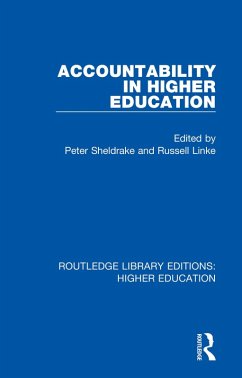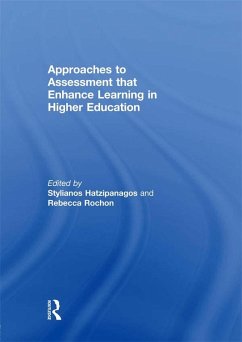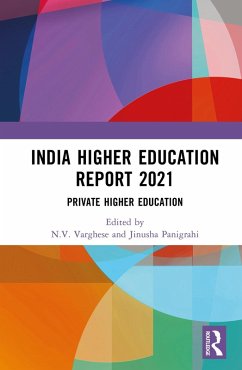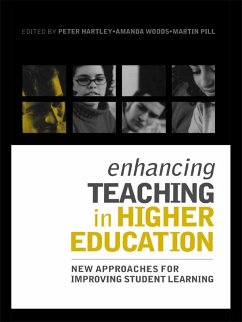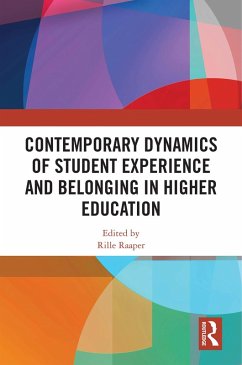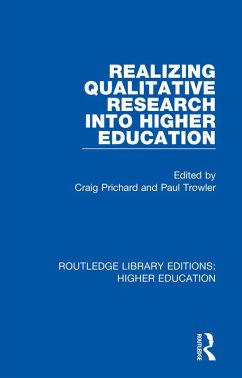
Building Knowledge in Higher Education (eBook, PDF)
Enhancing Teaching and Learning with Legitimation Code Theory
Redaktion: Winberg, Christine; Wilmot, Kirstin; McKenna, Sioux
Versandkostenfrei!
Sofort per Download lieferbar
37,95 €
inkl. MwSt.
Weitere Ausgaben:

PAYBACK Punkte
19 °P sammeln!
From pressures to become economically efficient to calls to act as an agent of progressive social change, higher education is facing a series of challenges. There is an urgent need for a rigorous and sophisticated research base to support the informed development of practices. Yet studies of educational practices in higher education remain theoretically underdeveloped and segmented by discipline and country. Building Knowledge in Higher Education illustrates how Legitimation Code Theory is bringing research together from across the disciplinary map and enabling practical change in a rigorously...
From pressures to become economically efficient to calls to act as an agent of progressive social change, higher education is facing a series of challenges. There is an urgent need for a rigorous and sophisticated research base to support the informed development of practices. Yet studies of educational practices in higher education remain theoretically underdeveloped and segmented by discipline and country. Building Knowledge in Higher Education illustrates how Legitimation Code Theory is bringing research together from across the disciplinary map and enabling practical change in a rigorously theorized way.
The volume addresses both students and educators. Part I explores ways of supporting student achievement from STEM to the arts, from introductory courses to doctoral training, and from using new digital media to reflective writing. Part II focuses on academic staff development in higher education, reaching from curriculum design to pedagogic practices. All chapters focus on issues of contemporary relevance to higher education, showing how Legitimation Code Theory enables these issues to be understood and practices improved.
Building Knowledge in Higher Education brings together internationally renowned scholars in higher education studies, academic development, academic literacies, and sociology, with some of the brightest new researchers. The volume significantly extends understandings of teaching and learning in changing higher education contexts and so contributes to educational research and practice. It will be essential reading not only to scholars and students in these fields but also to scholars and educators in higher education more generally.
The volume addresses both students and educators. Part I explores ways of supporting student achievement from STEM to the arts, from introductory courses to doctoral training, and from using new digital media to reflective writing. Part II focuses on academic staff development in higher education, reaching from curriculum design to pedagogic practices. All chapters focus on issues of contemporary relevance to higher education, showing how Legitimation Code Theory enables these issues to be understood and practices improved.
Building Knowledge in Higher Education brings together internationally renowned scholars in higher education studies, academic development, academic literacies, and sociology, with some of the brightest new researchers. The volume significantly extends understandings of teaching and learning in changing higher education contexts and so contributes to educational research and practice. It will be essential reading not only to scholars and students in these fields but also to scholars and educators in higher education more generally.
Dieser Download kann aus rechtlichen Gründen nur mit Rechnungsadresse in A, B, BG, CY, CZ, D, DK, EW, E, FIN, F, GR, HR, H, IRL, I, LT, L, LR, M, NL, PL, P, R, S, SLO, SK ausgeliefert werden.





